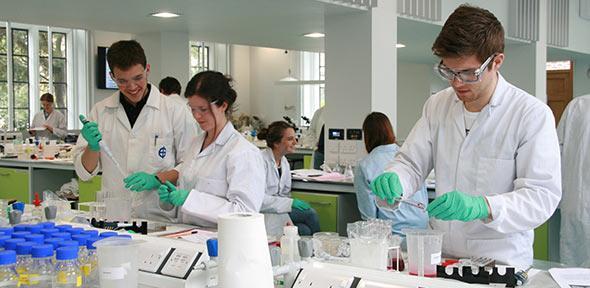
Plant Sciences at undergraduate level
Plant Sciences is taught within the Natural Sciences Tripos, which is the framework through which the University of Cambridge delivers most biological and physical sciences.
Students taking the Natural Sciences Tripos can study a range of courses involving plant sciences during their first and second years (Parts IA and IB), and can specialise entirely in Plant Sciences in their final (Part II) year.
The Plant Sciences department provides traditional lectures, interactive and highly regarded practical classes, field courses, small group supervisions and a variety of more informal seminars. This enables students to develop the key skill sets and knowledge base needed to make substantial contributions to the conservation and sustainable management and development of the world's plant resources in the decades to come.
-
In the first and second years (Part IA & Part IB), the department contributes to inter-departmental courses organised by the School of Biological Sciences. Our teaching covers themes including ecology, evolution, biochemistry, genetics, mathematical biology, development, physiology and the diversity of life.
- In the third year (Part II), we offer a variety of modules within the Plant Sciences and Zoology courses, focusing on plant processes at a range of levels. We usually have approximately 30 students taking our research-led final year Plant Sciences course, the largest number of graduating botanists in any UK university.
Almost half of our graduating students go on to do postgraduate research whilst others find posts in agriculture, conservation, teaching, management, publishing and industry.
We are certain that the University of Cambridge is the best place to study Plant Sciences. But don't just take our word for it. Hear from Liam, a recent Part II Plant Sciences student, below.
